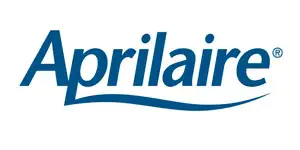
November 15, 2024
Heat pump water heaters (HPWHs) are becoming an increasingly popular choice for homeowners seeking energy efficiency. By drawing heat from the air to warm water, HPWHs consume less electricity than traditional water heaters. However, in cold climates, their performance can vary, and there are specific pros and cons to consider if you’re thinking of installing one. The Pros and Cons of Heat Pump Water Heaters in Cold Climates
Pros of Heat Pump Water Heaters in Cold Climates
1. Energy Efficiency: HPWHs are known for their energy efficiency, often using 60% less electricity than conventional electric water heaters. This efficiency remains a big advantage even in colder temperatures, where HPWHs can still reduce energy bills, albeit slightly less effectively than in warmer areas.
2. Lower Carbon Footprint: Since HPWHs use ambient heat from the air, they reduce reliance on electricity generated from fossil fuels. This makes them an environmentally friendly option, reducing your home’s carbon footprint and contributing to a cleaner planet.
3. Cost Savings: Although the initial installation cost of a heat pump water heater can be higher than traditional units, the ongoing energy savings can make up for it. Many cold-climate homeowners report recouping these costs within a few years of installation.
4. Dual Function in Warm Spaces: If installed in a basement or utility room, HPWHs can provide dual benefits by reducing room temperatures slightly, which may help keep spaces like these cooler and reduce air conditioning needs in the warmer months.
Cons of Heat Pump Water Heaters in Cold Climates
1. Reduced Efficiency in Cold Temperatures: HPWHs are less efficient in cold climates as they rely on extracting heat from the surrounding air. In areas with long, harsh winters, their performance may dip, causing a potential increase in energy consumption during colder months.
2. Installation Challenges: HPWHs require adequate space for airflow and work best in areas that remain above 40°F. Homeowners in extremely cold climates might find it challenging to maintain these conditions, potentially needing an additional heating source to keep the ambient temperature suitable.
3. Higher Initial Costs: HPWHs generally have a higher upfront cost than standard electric water heaters. While this is offset by long-term savings, the initial investment might be a consideration for some homeowners.
4. Noise: HPWHs operate with a compressor, which can be noisier than traditional water heaters. In cold climates, where homes are often sealed tight for insulation, this noise can become more noticeable.
Heat pump water heaters can be a smart, energy-efficient choice for homeowners, even in cold climates, provided the conditions are right and expectations are managed. If you’re considering a heat pump water heater, consulting with a professional HVAC team is essential to ensure it’s the right fit for your home.
The professional and highly skilled team at Maple Air is here to help you navigate your HVAC needs, offering expert advice and installation services tailored to your climate and home specifications. Contact Maple Air today to schedule a consultation and find the best water heating solution for your home!














